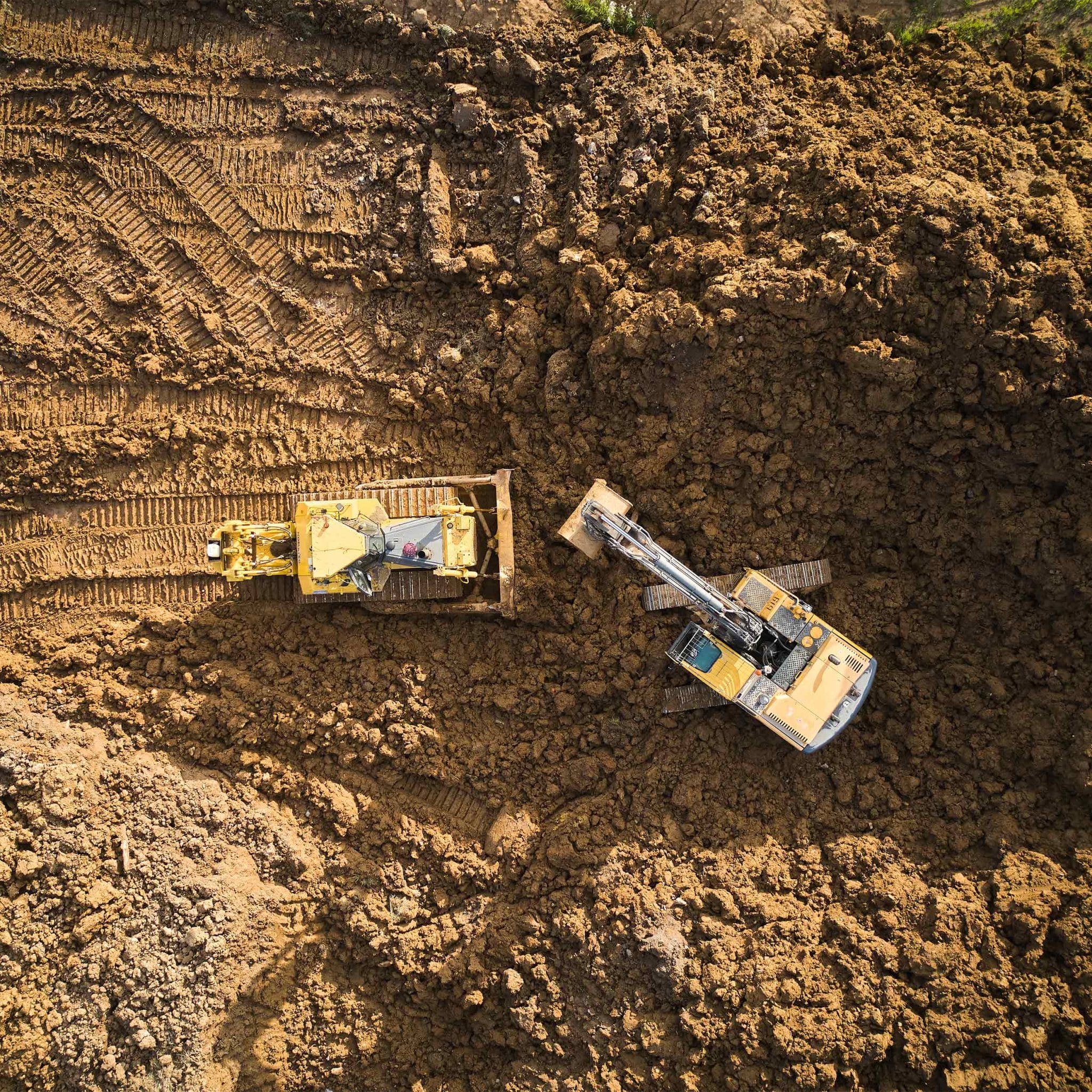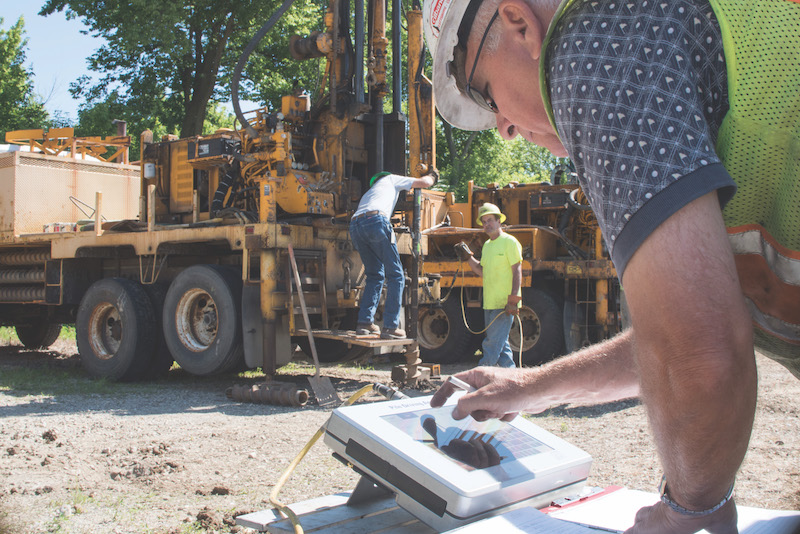Comprehending the Comprehensive Duty of Geotechnical Designers in Ground Examination and Dirt Evaluation for Building Jobs
Geotechnical engineers are important to the success of construction jobs, providing important insights via thorough ground investigations and dirt analysis. Their proficiency in analyzing dirt behavior and using innovative testing techniques educates crucial decisions that copyright structural stability and safety and security. By recognizing possible dangers and teaming up with multidisciplinary teams, these experts substantially affect task end results, including efficiency and cost-effectiveness. The complexities of their role often expand past these functions, motivating a much deeper exploration right into the methods they employ and the effects of their findings on general task stability.
Role of Geotechnical Designers
The pivotal function of geotechnical designers in construction projects can not be overemphasized, as they give necessary understandings into dirt habits and site conditions. These specialists are charged with evaluating the suitability of the ground for different sorts of frameworks, guaranteeing safety and security throughout the building and construction procedure. Their knowledge incorporates a vast variety of tasks, including site characterization, soil tasting, and lab screening, which are critical for establishing the mechanical and physical buildings of the dirt.
Geotechnical designers utilize their findings to develop foundational layouts that suit load-bearing needs and mitigate risks associated to soil liquefaction, slope, and settlement security. They play an important role in recognizing possible risks, such as groundwater variations and contamination, which can considerably affect project stability. Furthermore, they work together with architects, civil designers, and service providers to ensure that geotechnical factors to consider are incorporated right into the overall design and construction phases.
Ground Examination Strategies
Ground examination methods create the foundation of geotechnical design, making it possible for designers to get a thorough understanding of subsurface conditions. These methods are important for analyzing dirt residential properties, establishing groundwater degrees, and determining possible geological dangers.
Typical methods consist of borehole boring, which permits the removal of soil samples at various midsts, offering crucial information for analysis. Furthermore, in situ testing methods, such as Basic Penetration Tests (SPT) and Cone Infiltration Examinations (CPT), are used to examine soil strength and thickness straight in the ground.
Geophysical methods additionally play a considerable function in ground investigations. Strategies such as seismic studies and electrical resistivity tomography aid assess subsurface characteristics without comprehensive excavation. civil consulting engineers. These non-invasive approaches are specifically useful in sensitive or big areas where disruption need to be reduced
In addition, exploratory trenches can be excavated to visually check soil layers and identify any kind of anomalies. Each of these strategies contributes distinct insights, allowing geotechnical engineers to develop exact website evaluations and notify layout decisions. In recap, a mix of these ground examination strategies is important for successful construction tasks, guaranteeing safety and security and structural integrity.
Soil Evaluation Approaches
Dirt analysis approaches are essential for recognizing the physical and chemical residential or commercial properties of soil, which straight affect the design and construction of foundations and other structures. Different techniques are utilized to evaluate dirt characteristics, making sure that geotechnical designers acquire exact data for notified decision-making.
One typically utilized technique is grain size evaluation, which identifies the distribution of bit dimensions within a soil example. This is vital for classifying soil kinds and forecasting their habits under lots. Another important method is Atterberg limits testing, which assesses the plasticity and wetness content of fine-grained dirts, supplying understandings right into their design buildings.

Area examinations, such as Basic Penetration Tests (SPT) and Cone Penetration Examinations (CPT), offer beneficial in-situ data relating to dirt strength and stratification. Collectively, these soil evaluation approaches form the foundation of geotechnical examination, permitting engineers to create effective and secure frameworks tailored to the particular problems of the website.
Risk Reduction Methods
Implementing effective danger reduction approaches is vital for geotechnical engineers to attend to possible obstacles in construction projects. These approaches are critical in identifying, evaluating, and taking care of dangers related to dirt conditions, website security, and groundwater variations, which can detrimentally influence task outcomes.
One primary method entails carrying out complete site examinations that use advanced geophysical strategies and comprehensive dirt sampling. By obtaining accurate information on subsurface conditions, designers can make educated choices on design and construction techniques. In addition, employing anticipating modeling devices allows for the simulation of different circumstances, enabling engineers to predict potential issues and carry out safety nets.
In addition, establishing clear communication networks amongst task stakeholders fosters a collective technique to take the chance of management. Routine updates and appointments ensure that all parties understand the advancing site conditions and can adapt their strategies as necessary.

Impact on Building Projects
The effectiveness of risk reduction strategies straight influences the overall success of construction projects. Geotechnical designers play a crucial role in this domain name, as their know-how in ground investigation and dirt evaluation notifies important choices throughout the construction procedure. By precisely examining soil conditions and recognizing prospective hazards, these experts make it possible for job groups to devise efficient remedies that minimize threats connected with ground instability, water infiltration, and various other geotechnical obstacles.
The impact of extensive geotechnical evaluation appears in different facets of building jobs, consisting of price management, task timelines, and structural integrity. Early recognition of concerns enables prompt interventions, decreasing costly hold-ups and budget overruns. Moreover, an extensive understanding of website conditions boosts the style and design process, ensuring that structures are constructed to stand up to ecological pressures and prospective natural calamities.
Ultimately, the payments of geotechnical designers are indispensable to the successful execution of building and construction jobs. Their work not only cultivates security and compliance with regulations yet additionally improves the long-lasting sustainability of structures, making sure that they do successfully throughout their designated life expectancy. The collaboration in between various other stakeholders and geotechnical teams is important for achieving optimal results in building and construction endeavors.
Final Thought
Finally, geotechnical engineers perform a critical feature in building and construction jobs via comprehensive ground examinations and dirt analyses. Their proficiency in assessing dirt habits, utilizing different investigation strategies, and implementing risk mitigation techniques dramatically use this link adds to the architectural integrity and safety and security of built settings. By working together with multidisciplinary groups, these experts enhance job efficiency and ensure compliance with safety and security requirements, inevitably causing effective construction results and decreased possible risks.
Geotechnical hop over to here engineers are indispensable to the success of building and construction projects, offering necessary insights via comprehensive ground investigations and soil evaluation.The critical function of geotechnical designers in construction projects can not be overemphasized, as they offer vital understandings right into dirt actions and website conditions. Their knowledge includes a wide range of tasks, consisting of website characterization, dirt sampling, and lab screening, which are important for identifying the physical and mechanical residential or commercial properties of the soil.
By accurately examining dirt problems and determining potential threats, these professionals make it possible for project teams to create effective remedies that lower dangers connected with ground instability, water infiltration, and other geotechnical obstacles.
In conclusion, geotechnical engineers perform an important feature in construction projects through thorough ground investigations and dirt analyses.
Comments on “Crucial Qualities of Effective Civil Consulting Engineers”